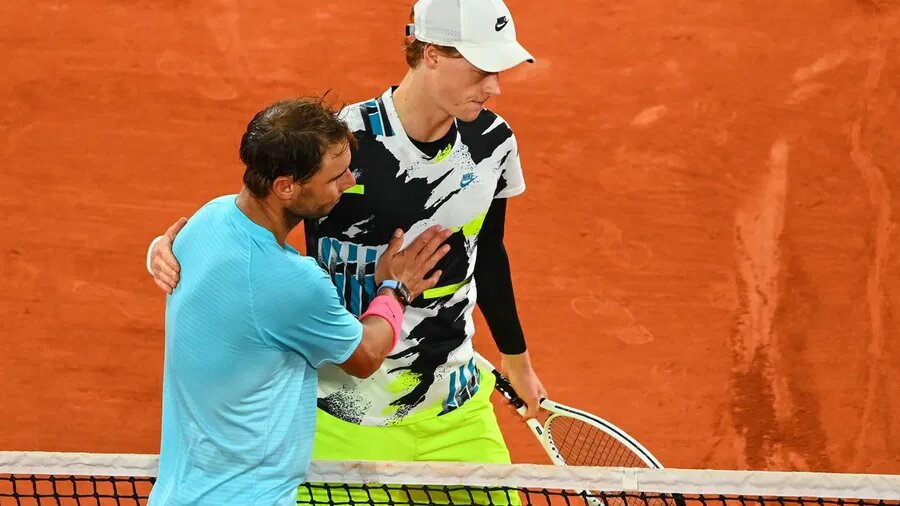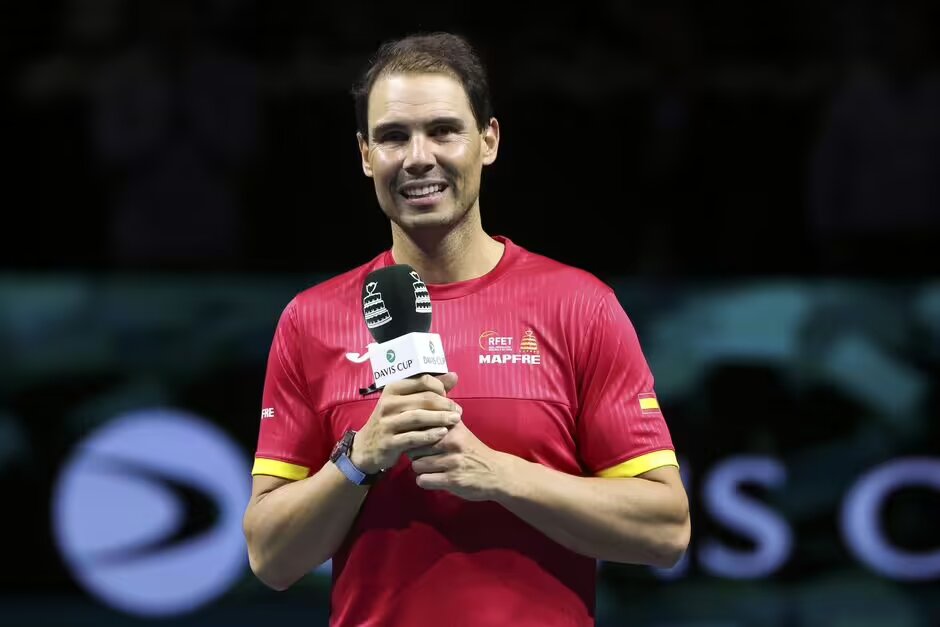Since Jannik Sinner‘s rise to prominence, he has received notable comparisons from the community.
Following his impressive victory over Alexander Zverev in the Australian Open finals, Zverev couldn’t help but draw a parallel to Novak Djokovic, saying, “He’s very, very similar to Novak when he was at his best.” That’s some high praise for the young Italian! But the accolades don’t end there.
WTA legend Chris Evert chimed in, noting Sinner’s maturity and poise on the court, comparing him to both Roger Federer and Rafael Nadal during their early days. However, after testing positive for clostebol in March 2024, he faced scrutiny despite being cleared once by the ITIA in August. Now, with WADA imposing a three-month ban, former ATP pro-Georges Goven is set to weigh in on the situation as discussions about fairness and support for Sinner continue to unfold.
What began in March 2024 has taken quite a wild turn for World No. 1 on his journey to greatness. He first tested positive for the banned substance during his at the BNP Paribas Open. Later the ITIA cleared him on grounds of “no fault or negligence” in August, only for WADA to come in and resurface the case to be appealed before CAS which was initially announced to be held in April, however, as per WADA’s General Counsel, Ross Wenzel, who noted that the agency is “blind to the calendar.” And that many tests were conducted “12 months preceding the two positives of March” to explain why Sinner’s case was resolved the way it was.
However, that doesn’t seem to appease the players like Nick Krygios, and Novak Djokovic or the fans who have noted that the system displayed impartial treatment and “favoritism” in the light of Sinner’s case. To add to that narrative, the former 56th player in the world, Georges Goven added his take by drawing a comparison to the Italian with that of the Spanish GOAT Rafael Nadal. He said, “Rafael Nadal has been tested more than 400 times in his life, he has never had anything. There, there were two positive tests, that’s the difference.”
While analysts have compared Sinner’s playing style and attitude on the court, they are most likely reserved to Novak and Federer. Albeit, a former Italian player Corrado Barazzutti once noted that “He plays at the level of a young Djokovic, a young Nadal, a young Federer.” But with his doping ban, it seems like his legacy is about to be tainted unlike that of the three legends who have never tested positive during the course of their careers.
This was emphasized by Goven but was straightforward in his admission, “We all agree that Sinner is a good person, interesting, calm, charismatic even if his game is not always very spectacular. But there will always be the fact that he tested positive twice, which has never happened to Nadal.” While that may be true, it doesn’t mean that the Spaniard didn’t face his share of controversies in his time.
In 2012, Nadal faced allegations from former French sports minister Roselyne Bachelot, who suggested that his seven-month injury break was due to a failed drug test. To defend his reputation, Nadal filed a defamation suit against Bachelot and emerged victorious, resulting in her being fined €500 (approximately $524.03) and ordered to pay him €12,000 (about $12,480.60) in damages and legal fees.
Nadal graciously donated the compensation to charity, emphasizing his commitment to clean sport and the values he upholds throughout his career. Moreover, when Jannik’s case surfaced, Rafa showed his support to the Italian.
Rafael Nadal showed his support for Jannik during doping controversy
In September, Rafa expressed his support for Sinner in an interview with El Hormiguero, stating, “I trust that if he has not been sanctioned it is because those who have had to judge this case have clearly seen that what happened was not punishable.” He emphasized that opinions vary but stood firmly behind the regulatory bodies’ decision.
The ITIA investigated and held a hearing in August, ultimately accepting Sinner’s explanation that the banned substance entered his system unintentionally. Sinner revealed that his physiotherapist had used a spray containing the substance during a massage, leading to the accidental doping violation.
The ITIA concluded that Sinner did not intentionally violate any doping regulations and decided against imposing a period of ineligibility. However, despite being cleared initially, Sinner recently accepted a three-month ban from February 9 to May 4, 2025, following a settlement with WADA.
As the conversation surrounding Sinner’s case continues to ignite on social media, he faces the music ahead of his return just in time for the 2025 French Open. Will he return with the same fire and continue his winning streak?



